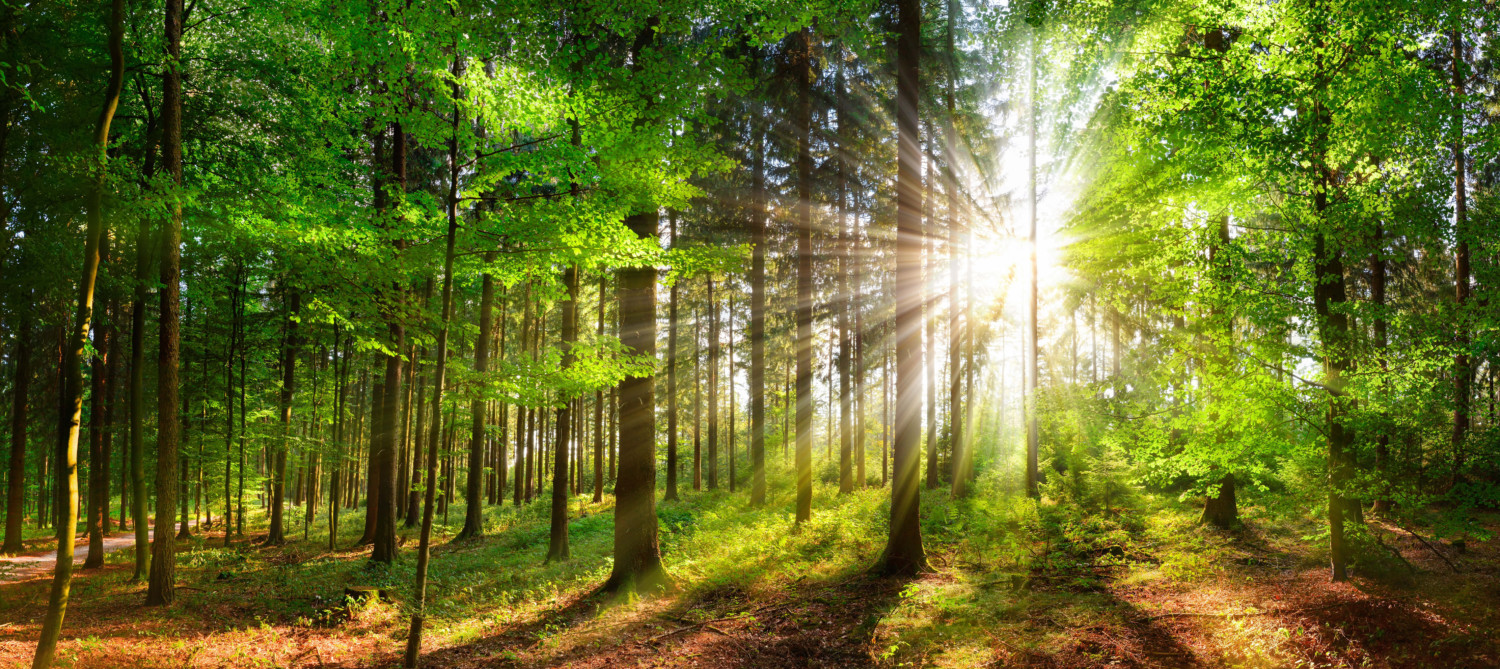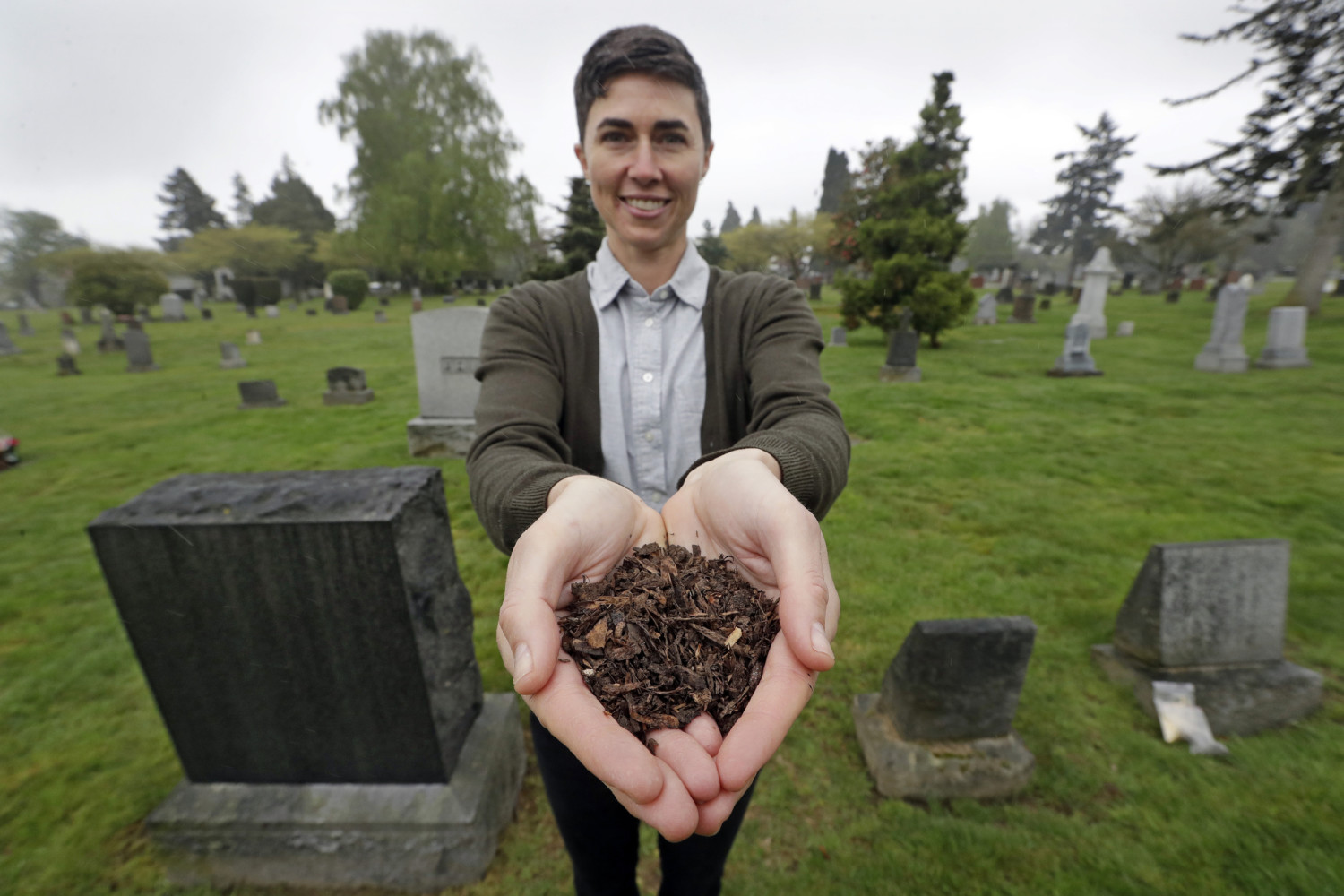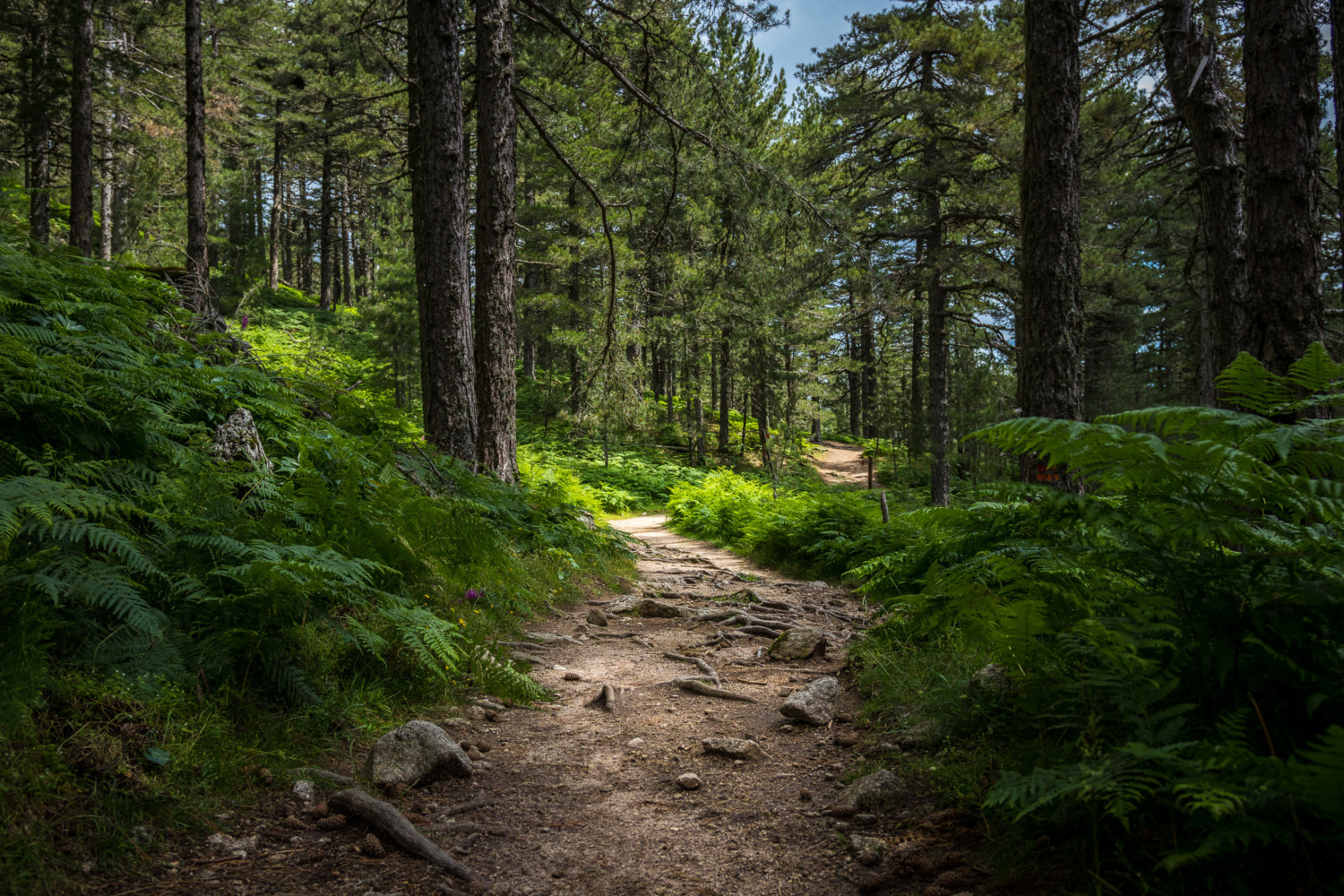Depending on where you live — and die — you might have a new choice available to you for how your loved ones will carry out your final wishes. In the past two years, bills that legalize human composting as an alternative to cremation or burial have passed in several states, and this option is in other state legislatures around the country.
In the states that have legalized it, this new legislation lets you choose to have your body composted after death, turning it to soil over the course of several months. Joshua Slocum, director of advocacy group Funeral Consumers Alliance, told the Seattle Times he applauded the new option.
“In this country, we have a massively dysfunctional relationship with death, which does not make good principles for public policy,” Slocum told the Seattle Times after the human composting was legalized in Washington. “Disposition of the dead, despite our huge emotional associations with it, is not — except in very rare cases — a matter of public health and public safety. It’s a real tough thing for people to get their minds around, and a lot of our state laws stand in the way of people returning to simple, natural, uncomplicated, inexpensive ways of doing things.”
In addition to offering a simple alternative, human composting is also a way to avoid the greenhouse gas emissions associated with cremation and the land use of a burial.
“The natural organic reduction allows a literal return to the earth,” Anna Swenson, an outreach manager with Recompose, a company in Kent, Washington, that developed a method for composting human remains using “natural organic reduction,” told The Guardian. “Some people like the idea of being in a forest when they die. That’s what I’ve chosen for myself.”
Intrigued? Here’s what happens when you choose human composting.

What Is Human Composting?
Human composting is exactly what it sounds like — it’s using the same natural process that works in your garden compost bin or pile to transform food scraps and yard waste into dirt. And forests benefit from human compost in the same way that your garden does.
“The forest needs the elements that are in the body — magnesium, the calcium, the phosphorus and all of those things in the body are desperately needed for the soil,” Walt Patrick told Popular Science. Patrick is a senior steward at the green burial nonprofit Herland Forest, which offers natural organic reduction — human composting — as an option.
Herland Forest’s process involves placing human remains, wood chips and wildflowers from the surrounding forest in a turnable “cradle.” They use solar energy for heat to speed the process but note on their website that it will still take longer in winter than summer.
Recompose’s founder, Katrina Spade (pictured below), became interested in human composting after learning about how this process has worked in an agricultural setting when farmers compost animals. At Recompose, human bodies are placed inside a vessel with wood chips, alfalfa and straw, but Spade points out that composting doesn’t work without one other important ingredient: air.

This is part of what makes human composting different from simply placing a body in the earth — there’s a process that the remains go through in order to turn into soil.
“With the aerated process, oxygen is a really important piece, because essentially what we’re doing is creating the right environment for microbes to do their job,” Spade told Bloomberg’s CityLab. “[It] requires oxygen, nitrogen and carbon, and then the microbes really do a beautiful job of breaking everything down on a molecular level and creating this beautiful, usable soil.”
The process even eventually breaks down bones and teeth, though it doesn’t work on non-organic materials someone might have in their body, such as an artificial joint or pacemaker. At Recompose, the staff removes those sorts of materials from the vessel as the decomposition is in process; Herland Forest removes them at the end.
Recompose’s composting process takes about 30 days.

After the body is transformed into “soil amendment” — about a cubic yard’s worth, Recompose says — they offer the option of donating it to a forest that is part of a land trust in southern Washington. Herland Forest also offers a tree-planting donation option, and they give people a year to pick up the compost remains so people have plenty of time to make plans for scattering it on their own land, if they choose.
Not to be confused with green burial, human composting purposefully turns the body into compost, which can then be scattered and returned to the land as soil, while a green burial means that the body is simply buried in the earth in a biodegradable shroud, so there’s still a gravesite, like in a traditional cemetery.
In this post on the Herland Forest Facebook page, you can see that human composting offers a burial option that is different — and more sustainable — than burial in a traditional cemetery.
Where Is Human Composting Allowed?
Washington state led the way with legislation that allowed for human composting with a bill in 2019 — thanks in part from Spade’s advocacy efforts in the state, which is where her company is located.
Washington’s legalization of human composting was followed by Colorado, where a human composting bill was signed into law in May of 2021, and then Oregon, where it became law in June.
Several other states have bills in the works, including Vermont, Delaware, New York and Hawaii. Cal Matters reports that the human composting bill in California’s state legislature has bipartisan support because both parties like the idea of giving consumers more choices.
Colorado’s bill also had bipartisan support. Republican Rep. Matt Soper, one of the bill’s cosponsors, told the Denver Post it was both a good business opportunity for funeral services and a good option for consumers that gives people “the ability to to do with your remains as you see fit.”
This story originally appeared on Simplemost. Checkout Simplemost for additional stories.


